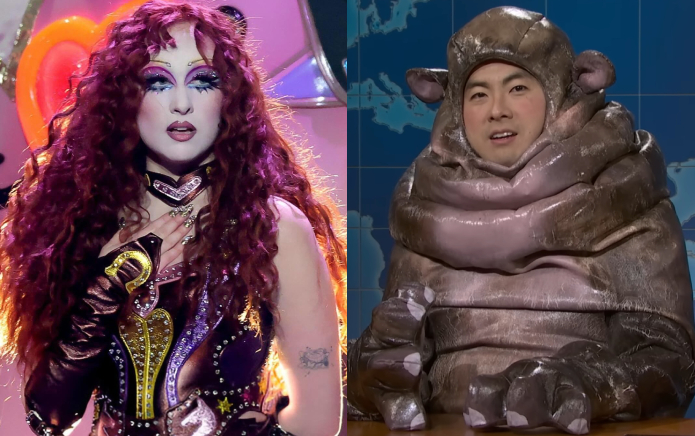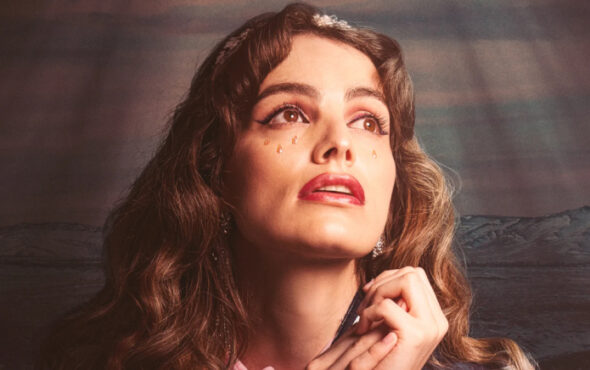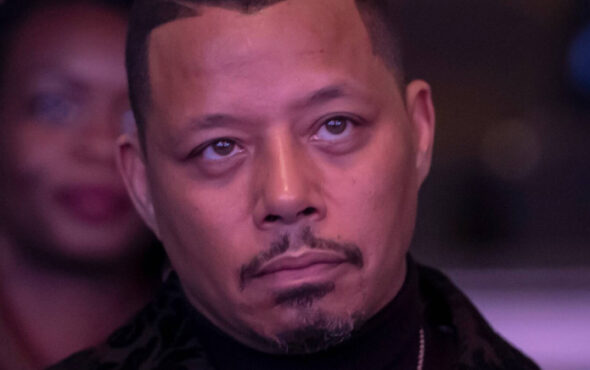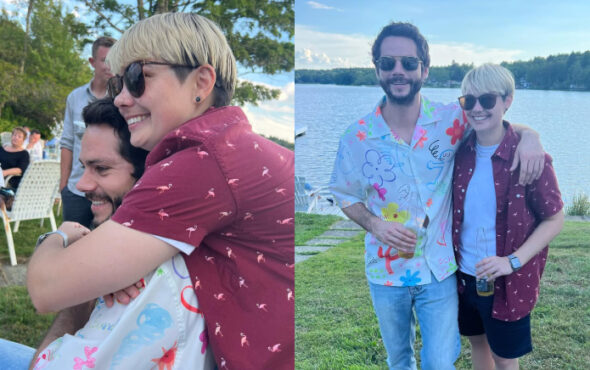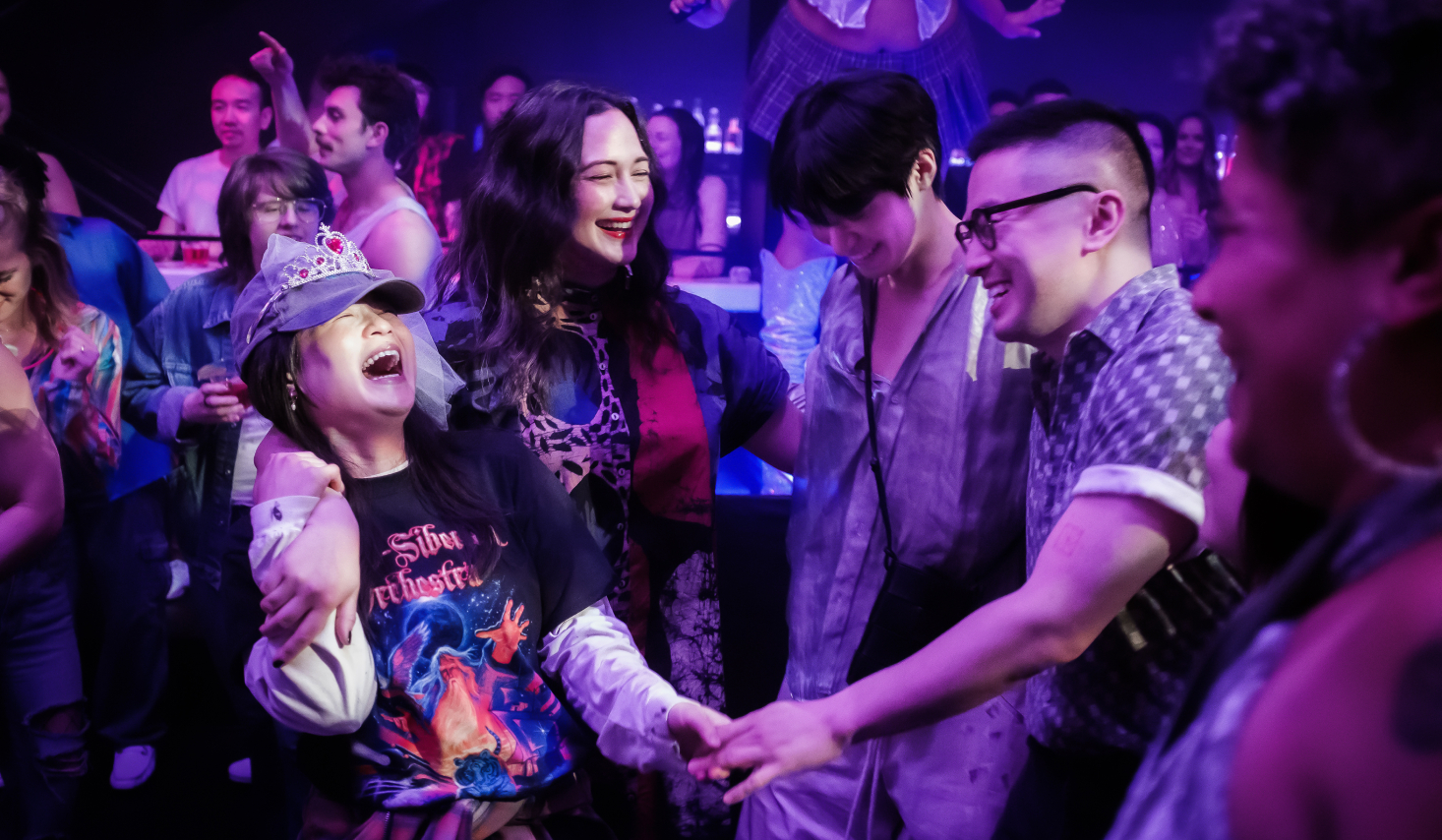
The stars of The Wedding Banquet have reflected on the film’s significance for LGBTQIA+, Asian and Indigenous-American representation, particularly in the era of Trump 2.0.
A remake of the 1993 classic of the same name, the queer rom-com follows lesbian couple Angela (Kelly Marie Tran) and Lee (Lily Gladstone), who are trying to have a baby via IVF but can’t afford a third round of treatment. They live with their friends: Min (Han Gi-chan), the closeted heir to a multinational empire, and his commitment-averse boyfriend, Chris (Bowen Yang).
When Chris turns down Min’s marriage proposal, Min decides to arrange a green-card marriage with Angela, offering to fund Lee’s IVF in exchange. Their plan is thrown into chaos when Min’s grandmother (Oscar-winner Youn Yuh-jung) arrives from Korea to meet her future granddaughter-in-law, and insists on throwing an extravagant wedding bash.
Directed by Andrew Ahn (Fire Island), The Wedding Banquet received rave reviews for Ahn’s direction and the cast’s performances, as well its homage to the original film as the refreshing dynamic between a gay and lesbian couple.
In an interview with GAY TIMES, Ahn reveals that he wanted to “reimagine” The Wedding Banquet for modern audiences, especially given the LGBTQIA+ community’s recent strides in marriage equality and parenthood.
“I wondered, ‘Now that we can [get married], do we actually want to? Should we?’ With my boyfriend, now that we have the option, it becomes a responsibility, a choice. I think there’s a lot of millennial indecision that we have,” explains Ahn. “And with children, I had this conversation with my boyfriend early on in our dating and he said, ‘If it happens it happens.’ I was like, ‘No! That doesn’t work that way for gay people.’”
“I realised in that moment, as a gay person, we have to be extremely intentional about having children and any sort of small hesitation actually becomes a big obstacle,” he continues. “I kind of split up my relationship with my boyfriend into these two couples – Chris and Min and Angela and Lee – to tackle these two ideas of how queer families can grow.”
Gi-chan, who makes his English-language debut in The Wedding Banquet, says he was drawn to Min as a “three-dimensional, complicated character” caught between living authentically as a gay man and fulfilling the expectations of his Korean family, a tension that reflects the complex intersection of queerness and cultural tradition.
“He’s still in the closet. And when I look at Min, he has a very child-like innocence, which I was really attracted to,” he says. “I think that everyone has a little child-like moment in the corner of their hearts, but we try to hide those moments when we grow up. That was similar to me, so it was the most charming [aspect of Min that] I was trying to make natural on the screen.”
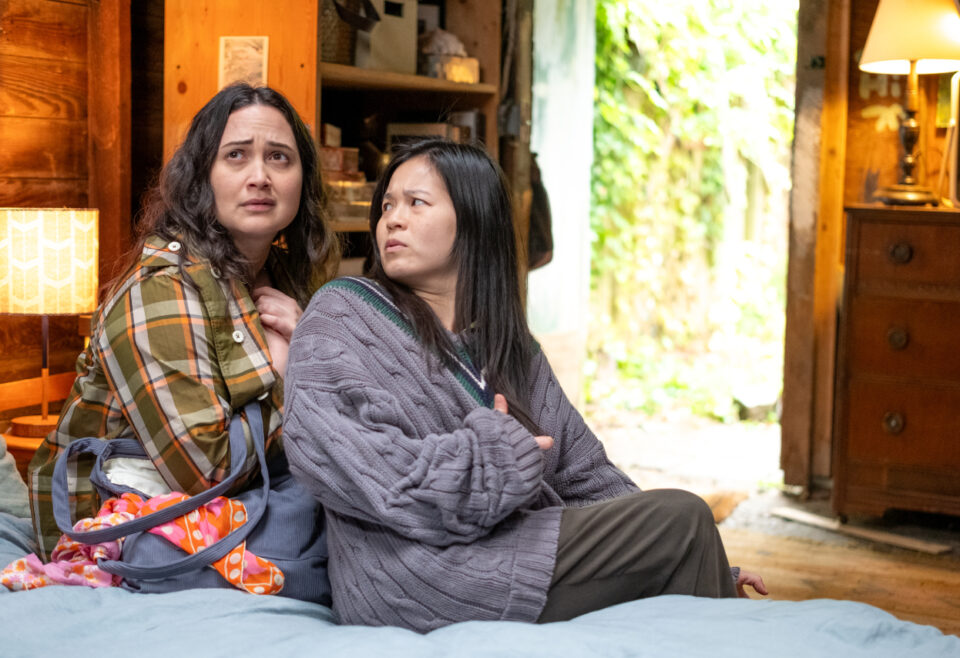
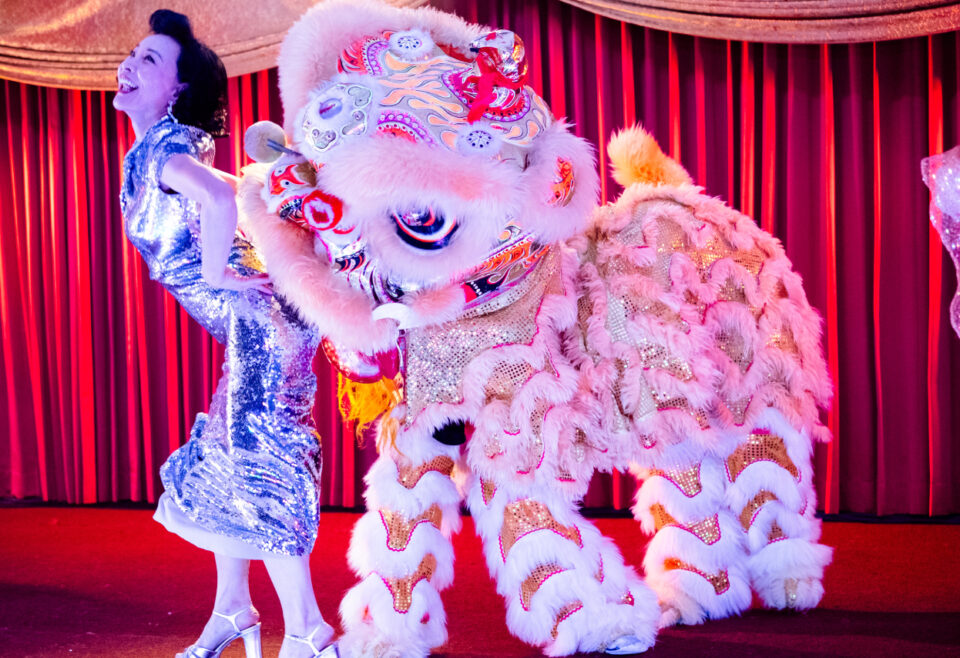
For Yang, he was interested in exploring why Chris is “paralysed by what’s possible”, how he’s sabotaging a happy future with Min because he’s still “dejected” by what’s no longer possible in other areas of his life. “I’ve been saying that this is about a gay couple and a lesbian couple, and there’s a lot of overlap in that Venn diagram,” the Las Culturistas star continues. “But, marriage and parenthood aren’t necessarily living in that overlap. So, what makes this movie very interesting and compelling is that these are two couples that have to grapple with two things they are not normally faced with understanding or really moving through in normal circumstances.”
The inclusion of both queer men and women as lead characters in The Wedding Banquet is one of many reasons the film is groundbreaking. While authentic queer narratives have become more visible in recent years, from All of Us Strangers and Fellow Travelers to Love Lies Bleeding and Bottoms, it’s still rare to see queer characters of different genders sharing the spotlight equally. Ahn quips that “gay men are so annoying sometimes” – a sentiment Yang immediately agrees with – before adding that there’s much to learn from other members of the LGBTQIA+ community, particularly when it comes to “showing solidarity and the organic friendships that can happen.”
Unlike his experience on Fire Island, which featured a predominantly male cast to reflect the setting, Ahn envisioned The Wedding Banquet as more representative of his own “friend group”. “That’s something I really valued in the experience of making this film,” he says. “And honestly, getting to work with Kelly Marie Tran and Lily Gladstone? What a cast. I was very happy to show this mixed queer family.”
Tran, best known for her role as Rose Tico in the Star Wars sequel trilogy, emphasises the importance of visibility for viewers with little exposure to East Asian, Indigenous-American or queer communities. “These are also human beings who are full of hopes and dreams, who want to be loved and accepted,” she says. In light of the current political climate, where LGBTQIA+ rights are under threat and Diversity, Equity, and Inclusion (DEI) initiatives are being rolled back, Tran underscores that “legislation doesn’t change until the culture does.” With that in mind, she adds, “Hopefully we get to change culture, change legislation, and make change. That is the dream.”
In light of content honouring Navajo Code Talkers being removed from various U.S. government websites, Gladstone emphasises just how timely a film like The Wedding Banquet is amid what she describes as a “slow rise in fascism”: “We’re rhyming with a very significant part of history again. I feel like, because our characters come from strong, identifiable cultural backgrounds that shape their queerness, it shaped how our characters interact with each other and is making a statement about the great DEI experiment of our time: America.”
Gladstone shares that the script for The Wedding Banquet didn’t explicitly identify Lee as Indigenous, but she approaches every role through the lens of her own identity. To illustrate, she cites a quote from Danny DeVito: “No matter what character I play, they’re all going to be short!” Gladstone, who memorably became the first Indigenous-American to win a Golden Globe for Best Actress and to be nominated for the Best Actress Oscar, for her role as an Osage woman in Killers of the Flower Moon (2023), saw The Wedding Banquet as an opportunity to continue honouring her heritage. She named her character after Princess Angeline, the daughter of Chief Seattle, leader of the Duwamish and Suquamish peoples.

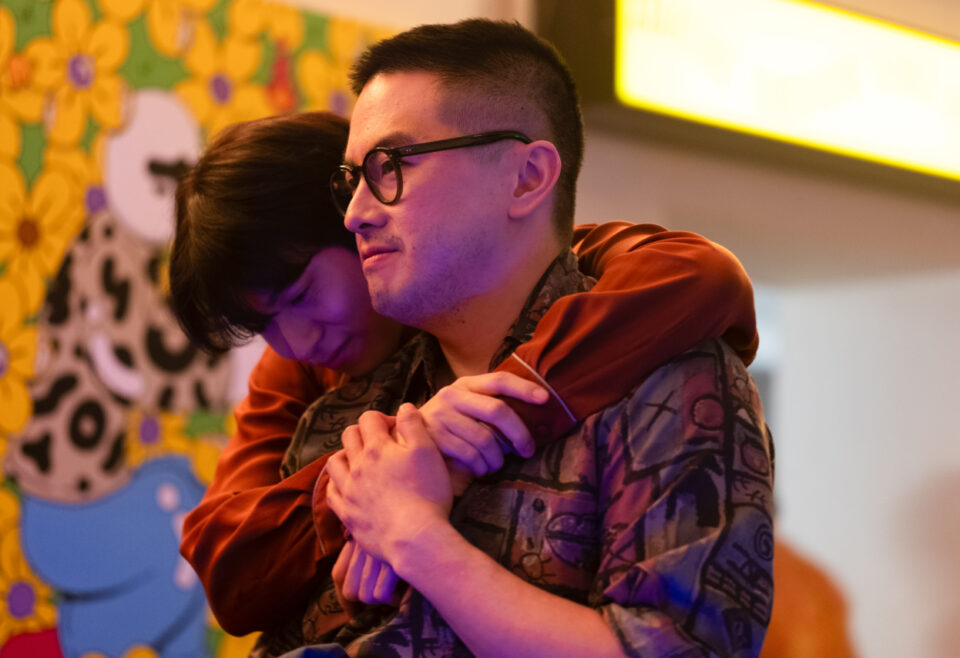
Building on that, Gladstone made a conscious choice to root Lee’s motivations and relationships in a deeply Indigenous worldview, one that pushes back against colonial ideas of land, family, and identity. “I had to decide why, in this day and age, it’s important for Lee to have a child of her own. It’s set up that we found a Taiwanese sperm, so the child would look, at least, like its mom, and it’s clearly Lee’s own egg. So, why would that be important to her?” For Gladstone, the idea of “keeping Duwamish land in Duwamish hands” became central to Lee’s story, especially considering that the Duwamish people, the original inhabitants of Seattle, are still not federally recognised and have repeatedly had their attempts at recognition blocked. Making Lee a Duwamish woman allowed both the character and the film to explore themes of land sovereignty and generational continuity.
Decolonising the concept of family was equally important. Gladstone notes that “it’s been only fairly recently in our history where the idea of the nuclear family has been introduced through colonisation,” along with homophobia, transphobia, and genderphobia. “There’s always traditionally been a space for multiple genders, multiple sexualities. The two have been delineated by our language and cultural practice. A lot of what seems like ‘new knowledge now,’ you can find roots in Indigenous knowledge.” For her, it was crucial that Lee be an explicitly Indigenous character who is “decolonising all of those things by being a community leader, by housing unhoused trans and queer youth, by creating a home for queer families on her ancestral land.”
@gaytimes Lily Gladstone reflects on the importance of indigenous representation in The Wedding Banquet ❤️ #interview #indigenous #indigenoustiktok #newmovie #nativeamerican #representation #queertiktok #dannydevito ♬ Pieces (Solo Piano Version) – Danilo Stankovic
The Wedding Banquet also stars Joan Chen as May Chen, Angela’s mother who, after previously rejecting her for her sexuality, has now become an unwavering LGBTQIA+ ally (and a “mother,” if you will), leading their local PFLAG chapter (Parents and Friends of Lesbians and Gays). Chen previously played Hwei-Lan Gao in Saving Face (2004), one of the first-ever films to centre an LGBTQIA+ Chinese character. It has since been hailed as one of the greatest queer films of all time. Despite May’s consistent efforts to be supportive, Angela sees her activism as performative, and that tension drives a wedge between them.
Whether it’s performative or not, May is trying – and that effort to do better is something many parents of LGBTQIA+ children can learn from. “This is the only way to love your children,” Chen tells GAY TIMES. “I have other lesbian friends who were in that generation, like the Saving Face director [Alice Wu], her generation, everybody has that tragedy, especially for East Asian families, how to tell your family [that you are queer]. Where I come from, it’s still not allowed in mainstream media. You think you’re a failure if your children are not straight. It’s like, ‘No, you cannot be gay because I’m not a bad mother’. That kind of attitude.”
Chen explains that May has overcome many of the prejudices and societal expectations placed on her as an East Asian mother of a queer child, and is now doing her best to “make up for it”: “You love her, not knowing that she has, in the beginning, hurt her child so deeply, traumatised [her]. But she’s not unique, it happens in most Asian cultures. [Wu] came out to her mom and, for two years, they didn’t speak, until the mother turned around. Somehow, you know, there is no other way to love your children.”
The Wedding Banquet is out in UK cinemas now.
